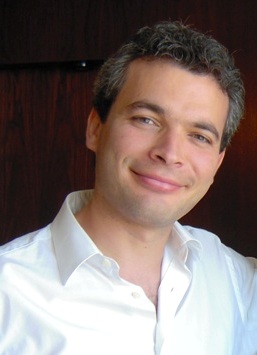|
VII CONGRESO
INTERNACIONAL y XII NACIONAL de
PSICOLOGÍA CLÍNICA SEVILLA,
14-16 de NOVIEMBRE, 2014
|
 |
|
| Javier Virués Ortega |
|
| The
University of Auckland. New Zealand |
|
| Español
|
|
| MiniCV Javier Virués-Ortega es
especialista en psicología
clínica y profesor de la Universidad de
Auckland (Nueva Zelanda) donde forma parte del
programa de análisis aplicado de
conducta. Con anterioridad ha sido profesor de
la Universidad de Manitoba (Canadá),
investigador del St. AmantResearch Centre
(Canadá), investigador post-doctoral
del Instituto de Salud Carlos III y
psicólogo interno residente. Ha
realizado estancias pre- y post-doctorales en
la Universidad de Hawai'i y la Universidad de
Florida bajo la supervisión de los Drs.
Stephen N. Haynes y Brian A. Iwata, ambos
destacados expertos en análisis
funcional de la conducta. Su grupo de
investigación estudia los factores
neurales, emocionales y conductuales
relacionados con los problemas de conducta,
principalmente, en personas con trastornos del
desarrollo. Su investigación ha sido
financiada por prestigiosas instituciones
tales como el Canadian Institutes of
HealthResearch. Es autor de más de
ochenta publicaciones especializadas
|
|
| Resumen Análisis de variables asociadas al cambio de conducta: Un estudio del comportamiento verbal durante el tratamiento “Los límites de mi lenguaje son los límites de mi mundo”. Este aforismo de Wittgenstein destaca la enorme influencia del lenguaje en el comportamiento humano en general y en el comportamiento disfuncional en particular. Conocer los mecanismos por los que se establece el comportamiento verbal, así como los procesos mediante los que el lenguaje influye otras conductas es esencial para la comprensión de los procesos clínicos. Tanto más cuando el lenguaje es el principal vehículo, si no el único, del que disponen los psicólogos clínicos para inducir cambios de conducta. En esta conferencia se analizarán los mecanismos conductuales mejor conocidos que permiten explicar la influencia del lenguaje en el comportamiento y las emociones disfuncionales. Ello tiene implicaciones directas en el diseño de intervenciones eficaces adaptadas a la problemática particular del cliente. |
|
| English
|
|
| MiniBio Javier Virués-Ortega is a
senior lecturer of applied behavior analysis at
the University of Auckland (New Zealand).Before
his tenure in Auckland, he has been assistant
professor at the University of Manitoba
(Canada), post-doctoral researcher at the
Insitituto de Salud Carlos III (Spain), and
clinical psychology resident (Spain Health
Ministry competitive residence program). He has
completed pre- and post-doctoral visiting
appointments at the University of Hawai’i and
the University of Florida under the supervision
of Dr. Stephen N. Haynes and Dr. Brian A. Iwata,
both renowned scholars in the field of
behavioral assessment. His research focuses on
the neural, emotional, and behavioral factors of
problem behavior, particularly among individuals
with developmental disability. His work has been
supported by the Canadian Institutes of Health
Research and other reputed international
agencies. He is author of over eighty
specialized publications.
|
|
| Abstract Analysis of the variables associated with behavior change in clinical contexts: A study of verbal behavior during treatment “The limits of my language are
the limits of my world.” This aphorism by
Wittgenstein underlines the fundamental
connection between language and behavior. The
basic mechanisms through which verbal behavior
is first acquired and the ways in which such
mechanisms influence other behaviors, are
central to the understanding of clinical
phenomena. Furthermore, language is the major,
and often only tool available to clinical
psychologists to induce changes in behavior.
This presentation will review the behavioral
mechanisms that are known to mediate the
relationship between language and clinically
significant behavior. These processes have
direct implications in the design of effective
interventions tailored to the clients’ problem
behavior.
|
|